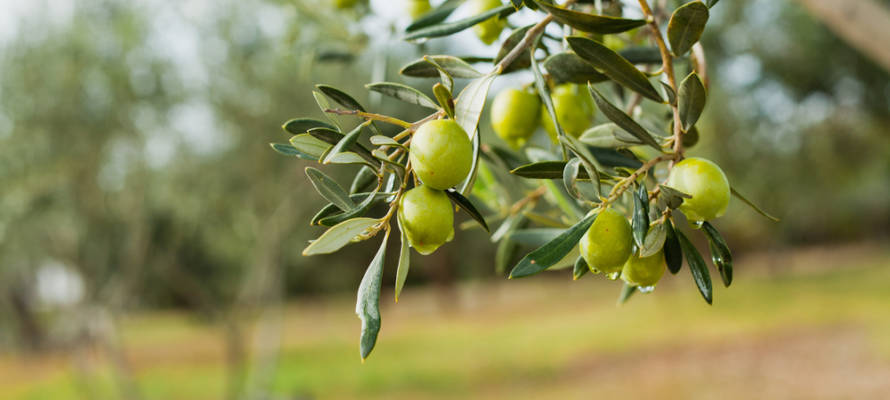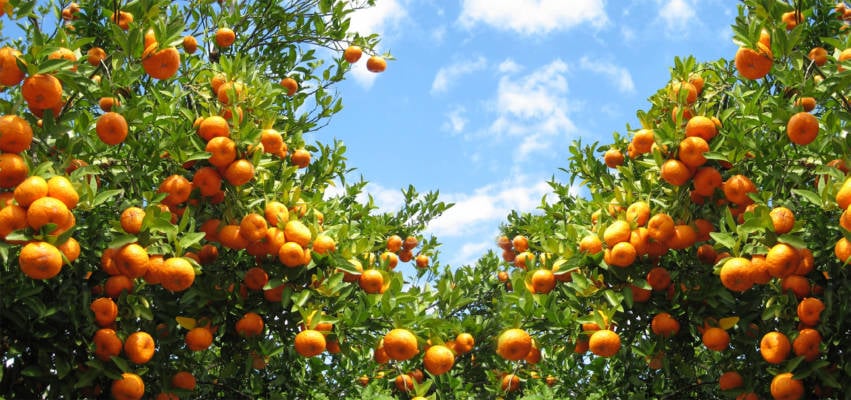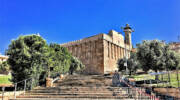“Extra-virgin olive oil protects people from age-related cognitive decline,’ said Antonio Capurso of the University of Bari. Perhaps Dr. Capurso has been reading the Talmud!
By Rabbi Ari Enkin, Rabbinic Director, United with Israel
The Jewish world is celebrating “Tu B’shvat” – the 15th day of the Hebrew month of Shvat, which is the New Year for trees. It is one of the four New Years on the Jewish calendar.
The first of Nisan is the “New Year” for kings and festivals; the first of Elul is the “New Year” for animal tithes, the first of Tishrei is what everyone knows as “Rosh Hashana” – the ‘main’ Jewish New Year; and finally, the 15th of Shevat is the New Year for trees.
As one can imagine, fruit takes central stage on Tu B’shvat with all kinds of fruit parties and gatherings. It is considered especially auspicious to eat the fruit with which the Land of Israel is associated. The seven species of the Land of Israel (Deuteronomy 8:8) are: wheat, barley, grape, fig, pomegranate, olive (oil), and date (honey). In this article I would like to focus on the olive.
Olives are probably the most prominent on the list as they are enjoyed as fruit as well as in the form of olive oil. Olives and olive oil are very significant throughout scripture as well as being relevant to everyday Jewish practice.
For example, one is required to recite a blessing after eating only if he or she has eaten at least an “olive size” amount of food. So, too, olive oil, besides being a part of the daily Israeli diet, is used to perform the mitzvah (Torah commandment) of lighting the Chanukah candles, and some use olive oil to light the weekly Shabbat candles.
Contrary to popular misconception, however, the dove in the story of Noah did not return to the ark with an olive “branch.” The Torah says that it was an olive “leaf.” Perhaps someone should update the international symbol for peace!
Olives, the Talmud…and Memory Loss?
The Talmud teaches that “five things cause one to forget knowledge…” and one of them is “eating olives frequently.” In fact, Rabbi Yochanan said that olives are so detrimental to memory that they can cause one to forget 70 years of study! Don’t panic, however. The Talmud then goes on to say that “there are five things which restore one’s forgotten knowledge,” and one of them is “eating olive oil….”.
Indeed, it is noted that when the Talmud associates olives with the land of Israel, it refers only to the oil, and not the fruit. So perhaps that Torah really doesn’t want us eating olives!
Olive lovers need not worry, however. Some of commentators say that the “olive curse” only applies to raw olives but not to olives that are salted, pickled or cooked (as all are these days!). Others say that the curse only applies if one eats them regularly, but that an occasional olive treat is fine. There are also those who say that eating olives once a month is completely fine.
As mentioned, those who fear the olive curse can counter its effects by consuming olive oil. As such, many have the practice of dipping olives in olive oil before eating them or drizzling some olive oil on the olives. Interestingly, research has shown time and time again that olive oil prevents memory loss.
“It seems that in the aging process, there is an increasing demand for unsaturated fatty acids and a Mediterranean diet… Extra-virgin olive oil protects people from age-related cognitive decline,” said Antonio Capurso of the University of Bari, who carried out a study on 300 people. Perhaps Dr. Capurso has been reading the Talmud!
REBUILD ISRAELI FARMS DESTROYED BY HAMAS - PLANT TREES!
ISRAELI FARMERS DESPERATELY NEED YOUR YOUR HELP
Hamas tried to destroy everything. Terrorists murdered 1200 innocent Israelis. Join us in planting 12,000 trees of life to honor the victims. Send blessing to the People and Land of Israel.
“…I will ordain My blessing for you…” (Leviticus 25:4,21)
JOIN OUR CAMPAIGN TO PLANT 12,000 NEW FRUIT TREES ACROSS THE LAND OF ISRAEL!























